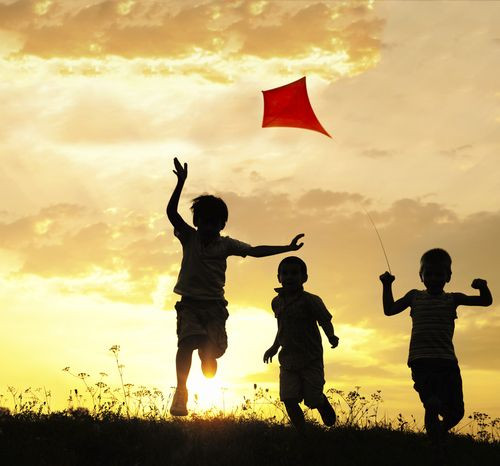Parenting Brings Happiness Until The Third Child: The Rollar Coaster Of Raising Kids

Becoming a parent is a major life-changing event, and no matter how many parent books you read, you’ll never be fully prepared for the amount of joy, along with ups and downs it will bring. German researchers have traced the pattern of parental happiness for nearly 20 years, and it looks like a roller coaster of emotions from kid to kid.
"Our results show a temporary and transitory gain in parents' happiness around the birth of first and second children,” the study’s lead researcher Mikko Myrskylä, a professor of demography at London School of Economics and director of the Max Planck Institute for Demographic Research in Rostock, Germany, said in a press release. Myrskylä and his research partner studied how heavily a mother and father’s emotions weigh on the timing of their children. “The fact that parental happiness increases before these children are born suggests that we are capturing broader issues relating to childbearing such as couples forming partnerships and making plans for the future,” he said.
Parenting relies on a delicate balance based on a multifaceted set of socioeconomic factors that determines an individual’s happiness. Researchers published their key findings in the journal of Demography, which revealed one of the greatest influences is how many children it will take to change that happiness. Parents’ happiness is highest in the year before and the year following their first-born’s birth. After that though, their level of happiness recedes back down to their “pre-child” levels. The second child they have provides them with the same peaks and dips of happiness as the first child did. But there’s something about the birth of the third child that did nothing to improve or lower the parents’ happiness.
"The arrival of a third child is not associated with an increase in the parents' happiness, but this is not to suggest they are any less loved than their older siblings,” Myrskylä said. “Instead, this may reflect that the experience of parenthood is less novel and exciting by the time the third child is born or that a larger family puts extra pressure on the parents' resources. Also, the likelihood of a pregnancy being unplanned may increase with the number of children a woman already has — and this brings its own stresses."
Researchers studied couples between the age groups of 23 to 34 and compared them to 35 to 49 year olds for 18 years after their first child was born. The older groups were typically more educated and showed the greatest increases of happiness before and after the birth of their first born. The younger group showed increases of happiness as well, except after a year or two their happiness fell back to normal or even dropped to lower than where they started. Teens are a completely different story. They followed a pattern unique to their own, unplanned set of circumstances in which their happiness steadily decreased below their pre-child happiness levels.
“The fact that among older and better-educated parents, well-being increases with childbearing, but the young and less-educated parents have flat or even downward happiness trajectories, may explain why postponing fertility has become so common,” the study’s coauthor Rachel Margolis assistant professor from Western University’s Faculty of Social Science, said in a press release.
Aside from the age when couples become parents, men and women differ from each other. Women have much greater levels of happiness while they’re expecting and then right after birth compared to men. It may have something to do with the fact their hormones control a lot of the bonding that goes on between a mother and their baby. Oxytocin, endorphin, and adrenaline hormones play major roles in regulating the process of labor and birth, according to Childbirth Connection. Oxytocin is often referred to as the “hormone of love” because it fosters feelings of nurturing behavior and secretes during sex, labor, birth, and the moment a mother sees her baby for the first time. But after the first year, women have a much steeper drop in their happiness than men, and then both mom and dad level out for the long run.
Source: Myrskylä M and Margolis R. Happiness: Before and After the Kids. Demography. 2014.
Published by Medicaldaily.com



























